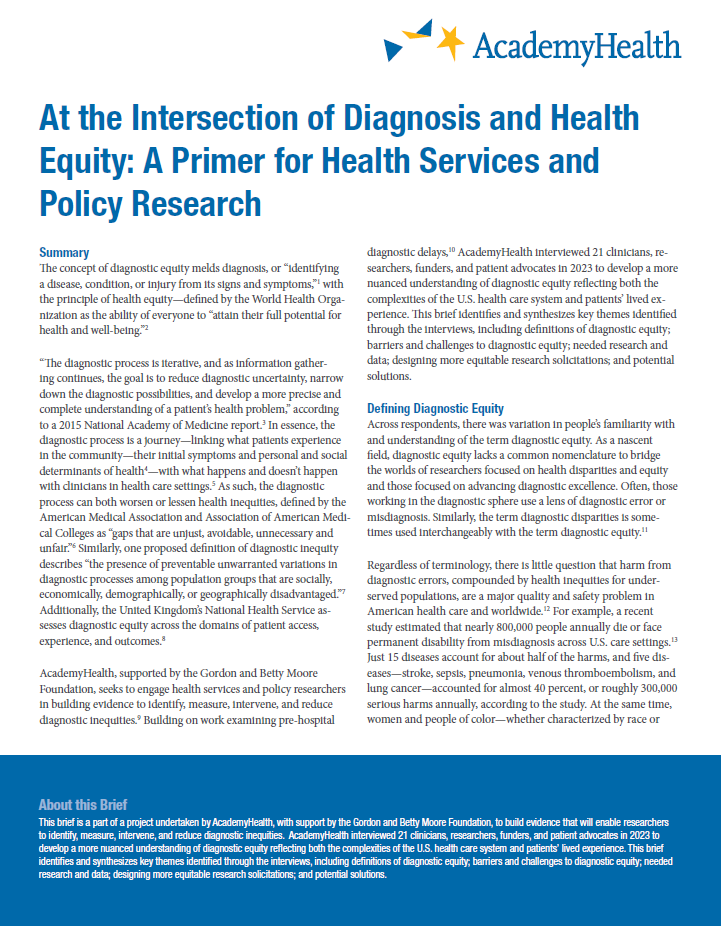
At the Intersection of Diagnosis and Health Equity: A Primer for Health Services and Policy Research
AcademyHealth interviewed clinicians, researchers, funders, and patient advocates to develop a more nuanced understanding of diagnostic equity reflecting both the complexities of the U.S. health care system and patients’ lived experience.
Ensuring diagnostic equity means providing everyone with an equal chance of receiving a timely, accurate diagnosis to lead to appropriate interventions, regardless of personal characteristics. In 2023, AcademyHealth conducted 21 interviews with clinicians, researchers, funders, and patient advocates to gain a comprehensive understanding of the intricacies of the U.S. health care landscape and patients’ lived experiences. This issue brief outlines and synthesizes key insights gleaned from these interviews, covering topics such as the definition of diagnostic equity, obstacles and hurdles hindering diagnostic equity, necessary research and data requirements, strategies for designing more equitable research solicitations, and potential avenues for resolution.
Diagnostic equity can serve as a guiding principle to elevate the importance of the diagnostic process within the realm of health services research. Many respondents noted that the concept of diagnostic equity is a useful way to frame and focus on the breadth of issues that impede accurate and timely diagnoses. By fostering collaboration among researchers, there is potential to establish a robust evidence base that can pinpoint actionable steps to make the diagnostic process more equitable for all.